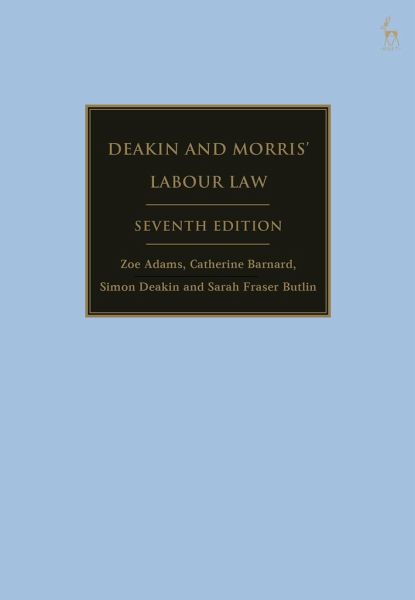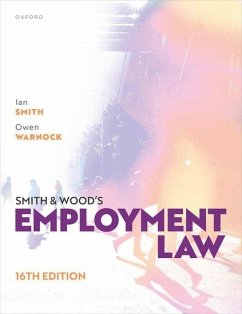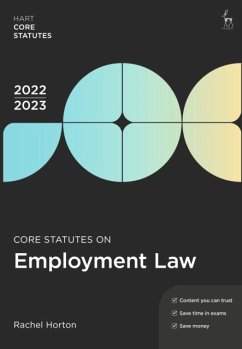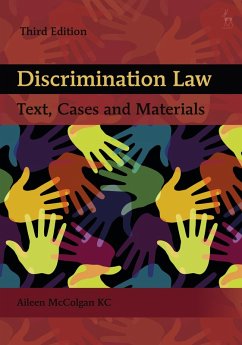
Deakin and Morris' Labour Law
Versandkostenfrei!
Versandfertig in 2-4 Wochen
76,99 €
inkl. MwSt.
Weitere Ausgaben:

PAYBACK Punkte
38 °P sammeln!
Deakin and Morris' Labour Law, a work cited as authoritative in the higher appellate courts of several jurisdictions, provides a comprehensive analysis of current British labour law which explains the role of different legal and extra-legal sources in its evolution, including collective bargaining, international labour standards, and human rights. The new edition, while following the broad pattern of previous ones, highlights important new developments in the content of the law, and in its wider social, economic and policy context. Thus the consequences of Brexit are considered along with the ...
Deakin and Morris' Labour Law, a work cited as authoritative in the higher appellate courts of several jurisdictions, provides a comprehensive analysis of current British labour law which explains the role of different legal and extra-legal sources in its evolution, including collective bargaining, international labour standards, and human rights. The new edition, while following the broad pattern of previous ones, highlights important new developments in the content of the law, and in its wider social, economic and policy context. Thus the consequences of Brexit are considered along with the emerging effects of the Covid-19 crisis, the increasing digitisation of work, and the implications for policy of debates over the role of the law in constituting and regulating the labour market. The book examines in detail the law governing individual employment relations, with chapters covering the definition of the employment relationship; the sources and regulation of terms and conditions of employment; discipline and termination of employment; and equality of treatment. This is followed by an analysis of the elements of collective labour law, including the forms of collective organisation, freedom of association, employee representation, internal trade union government, and the law relating to industrial action. The seventh edition of Deakin and Morris' Labour Law is an essential text for students of law and of disciplines related to management and industrial relations, for barristers and solicitors working in the field of labour law, and for all those with a serious interest in the subject. This title is included in Bloomsbury Professional's Employment Law online service.













